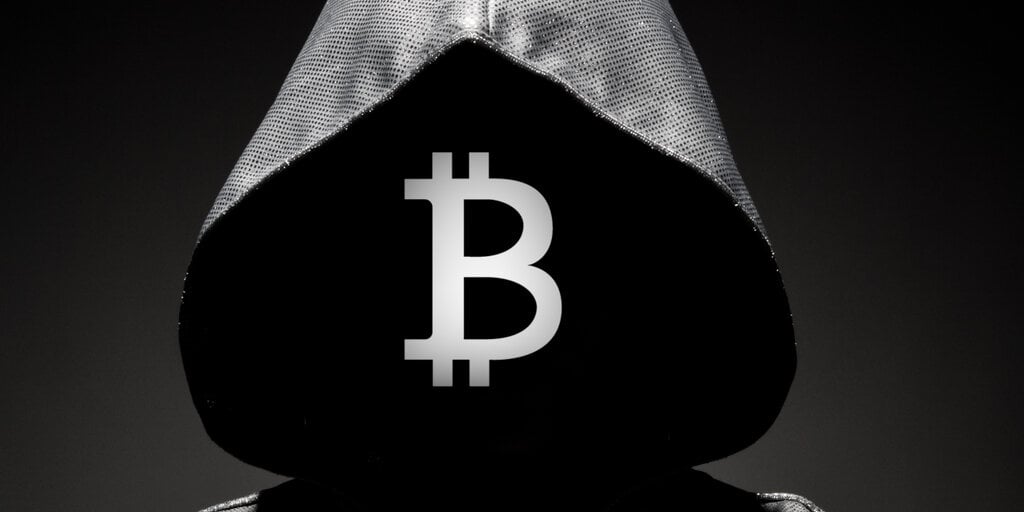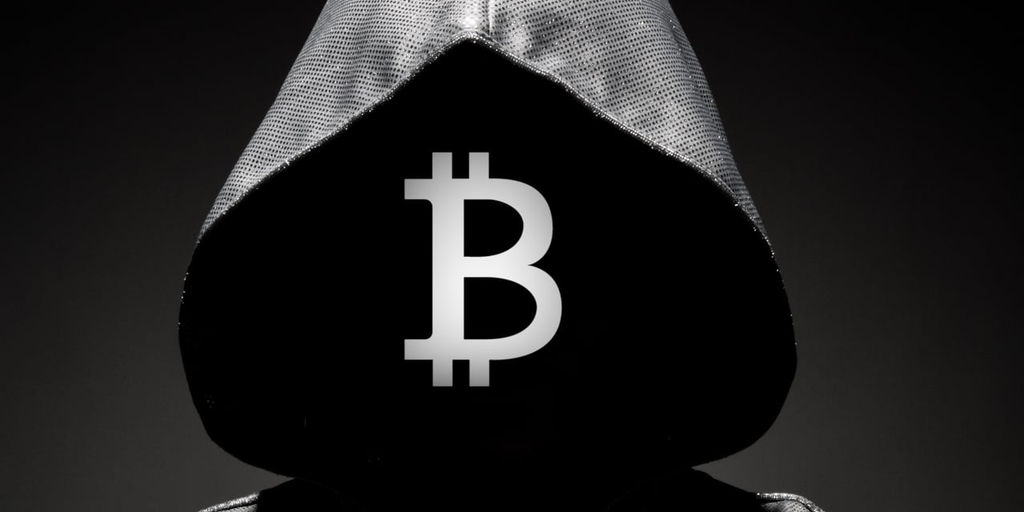Coins
This Man Claims to Be Bitcoin Creator Satoshi Nakamoto—Should We Believe Him?
Published
3 weeks agoon
By
admin

Sixteen years ago today, the Bitcoin whitepaper was released by the pseudonymous Satoshi Nakamoto. Now, a British-Asian macroeconomist claims that he is the elusive creator of the leading cryptocurrency, as he revealed Thursday at a small event in London.
On Wednesday, a press release was blasted to journalists, claiming that “a live demonstration” would be conducted to “conclusively” prove that the real Satoshi has been identified. The event was held at the Frontline Club, a prestigious pub in London that insisted it is not affiliated with the event, costing £500 a ticket—with tweeted event photos suggesting that only a handful of people ultimately attended.
Stephen Mollah took the stage claiming to be Satoshi Nakamoto, Joe Tidy of BBC News reported on Twitter. Mollah told the audience that he had previously attempted to out himself as the creator of Bitcoin, but “someone stopped him”. He also claimed that he was later interviewed by the BBC, yet they did not publish the story.
A man called Stephen Mollah has taken to the stage. He claims to be Satoshi Nakamoto – the mystery inventor of Bitcoin. He’s claimed this before and is currently in legal dispute about it. He will now provide evidence, he says. pic.twitter.com/XkapPT7y3c
— Joe Tidy (@joetidy) October 31, 2024
As the event dragged on for an hour, those in attendance reportedly grew restless as Mollah delayed in showing his evidence—claiming he couldn’t get his laptop working. Eventually, the man pulled up “easy to fake screenshots,” the BBC journalist said.
Charles Anderson, the organizer of the event and “PR manager for Satoshi Nakamoto” according to his LinkedIn, claims to have seen “cryptographic” evidence that Mollah is the real deal—but this was not presented to attendees.
One way that Mollah could prove that he is Satoshi is by moving Bitcoin from the Genesis block. Mollah claimed that he will do that at a later date during a “proper, official press conference.”
“Genesis block Bitcoin cannot be moved as simply as you think,” Mollah told the BBC journalist in the crowd. “It can be moved, but I need to prepare for it. I’ll do it. Very soon.”
At the event, Mollah also claimed to have created the Twitter logo, ChatGPT, and the Eurobond, a type of debt.
Mollah’s LinkedIn account lists the Bitcoin whitepaper as one of his publications, claims that he has patented Bitcoin and blockchain technology, and states that he is an executive director of Coinbase Limited.
However, he is not listed on the centralized exchange’s board of directors, and Coinbase did not immediately respond to Decrypt’s request for comment.
“I am an innovator in the financial technology. I am known by my Japanese pseudonym Satoshi Nakamoto. I am the inventor of Bitcoin and blockchain technology,” Mollah’s LinkedIn says. “I am not a Japanese man. I am a British-Asian macroeconomist.”
On Twitter, Mollah has also been sounding this siren from as early as 2014, posting that “there is no any other Satoshi Nakamoto beside me.” In 2018, he posted a spree of tweets calling out all of the “Faketoshis” out there.
The search for Satoshi has raged on for as long as Bitcoin has been in circulation. Recently, an HBO documentary claimed that the elusive crypto creator was Bitcoin core developer Peter Todd, who has denied the claims—and many Bitcoiners were skeptical of the evidence.
Mollah said that he aimed to put an end to the ongoing speculation Thursday.
“Today, I just wanted to say that it is me, I am here. And I am going to publish, very soon, the documentation that the people need, the journalists need,” he told the audience. “They must stop searching for Satoshi Nakamoto, online or offline, anywhere in the world. Because there is no other Satoshi Nakamoto besides me.”
Edited by Andrew Hayward
Daily Debrief Newsletter
Start every day with the top news stories right now, plus original features, a podcast, videos and more.
Source link
You may like


Gensler to resign as SEC chair: What’s next under Trump?


Ripple Provided The Blueprint To Defeat Gary Gensler


Another U.S. SEC Democrat to Drop Out, Leaving Republicans Running Agency by February


Catzilla vs Cardano vs TRX for year-end success


Will Polkadot Price Continue To Rally Following 100% Surge?


Dogecoin, Shiba Inu set the trend; this altcoin is ready to take the spotlight next
Coins
Magic Eden Token Airdrop Date Set as Pre-Market Value Hits $562 Million
Published
1 day agoon
November 22, 2024By
admin

The ME Foundation will launch its Solana-based ecosystem token—ME, which is aligned with leading NFT marketplace Magic Eden—on December 10, a representative told Decrypt.
The airdrop, which traders anticipate may be worth more than $500 million based on pre-market trading prices, will reward users of Magic Eden’s Bitcoin exchange and cross-chain NFT marketplace. The token will be claimable exclusively through the Magic Eden Wallet app.
Specifics regarding the conversion of Magic Eden Diamonds, the platform’s existing rewards program, to the ME token have not been revealed. However, the spokesperson said that allocations are expected to be based on factors such as “organic” trading activity, cross-chain trading, and “loyalty” or historical use of eligible platforms.
While users will not find out their allocations until December 10, they will be able to check their eligibility for the airdrop in the days before the claim using a tool that will be released by the ME Foundation.
When the claim officially opens on December 10, 12.5% of the total 1 billion ME supply (125 million tokens) will be immediately unlocked and offered to eligible Magic Eden users to claim. An additional 22.5% of the supply, or 225 million ME tokens, will be set aside to incentivize future use of ME Foundation protocols and related platforms.
The ME token has jumped up to $4.50 in pre-market trading via Whales Market, though trading volume has subsided since additional token details were announced on Monday. At that price, the ME airdrop would reward users with over $562 million on claim day. Coinbase’s pre-market trading platform puts the price lower at $3.41, however.
Magic Eden started as a Solana NFT marketplace, but has since grown to become the leading Bitcoin Runes and NFT exchange while maintaining the highest market share among all NFT marketplaces in the last six months according to data from Tiexo.
Edited by Andrew Hayward
Daily Debrief Newsletter
Start every day with the top news stories right now, plus original features, a podcast, videos and more.
Source link
Coins
Justin Sun Goes Bananas: Snags Controversial “Comedian” Artwork for $6.4 Million
Published
3 days agoon
November 21, 2024By
admin

What’s worth millions, taped to a wall, and destined to rot? Hint: It’s art you can’t hang for long.
Maurizio Cattelan’s infamous duct-taped banana art piece, Comedian, fetched an eye-popping $6.24 million, including fees, at Sotheby’s contemporary art auction in New York on Wednesday night.
The sale saw six bidders battle it out before Jen Hua, deputy chairman of Sotheby’s and chairman of Sotheby’s China, placed the winning bid on Tron founder Justin Sun’s behalf.
The artwork shattered its $1.5 million pre-sale estimate and became its place as one of the most expensive—and controversial—art pieces (or should we say fruit) ever.
Sotheby’s accepted crypto payments for this sale as the market is seeing new heights following Donald Trump’s re-election, with Bitcoin (BTC) soaring to $97,000 on Wednesday.
The crypto entrepreneur, Sun, claimed the artwork in a heated five-minute bidding war that involved six other participants.
After over 6 minutes of heated bidding, Deputy Chairman of Sotheby’s and Chairman of Sotheby’s China, Jen Hua, placed the winning bid for ‘Comedian’ on behalf of @justinsuntron, Chinese collector and founder of cryptocurrency platform TRON. https://t.co/Vf6kMoHfOQ
— Sotheby’s (@Sothebys) November 21, 2024
“This is not just an artwork; it represents a cultural phenomenon that bridges the worlds of art, memes, and the cryptocurrency community,” Sun wrote on X, sharing his “banana” experience.
He announced plans to eat the banana in the coming days as part of what he described as “honoring its place in both art history and popular culture.”
The artwork comprises a real banana affixed to a wall with duct tape, accompanied by a certificate of authenticity and instructions for replacing the fruit as it inevitably decays.
During the heated auction, Sotheby’s auctioneer Oliver Barker quipped, “These are the words I never thought I’d say, ‘$5 million for a banana.’”
The banana’s rise to infamy in the art scene began in 2019 when one sold for $120,000 at Art Basel. The work became a viral sensation after performance artist David Datuna ate the banana, dubbing his act “Hungry Artist.”
Since then, Comedian has sparked conversations about the absurdity and subjectivity of art valuation.
Justin Sun founded the blockchain platform Tron in 2017. In December 2021, he stepped down as CEO of the Tron Foundation, claiming he had transferred control of the project to Tron DAO, a non-profit decentralized autonomous organization.
Edited by Sebastian Sinclair
Daily Debrief Newsletter
Start every day with the top news stories right now, plus original features, a podcast, videos and more.
Source link
Coins
McDonald’s Reveals Doodles Collab for Coffee and Collectibles
Published
1 week agoon
November 14, 2024By
admin

The golden arches are getting a pastel makeover for the holiday season.
Fast food giant McDonald’s and Web3-native brand Doodles revealed a collaboration Thursday, featuring custom cups that showcase the Ethereum NFT collection’s colorful, hand drawn style. On top of that, customers can unlock digital collectibles and content, as well as access co-branded physical merchandise.
Dubbed the “GM Spread Joy” campaign, the marketing initiative is being billed as an immersive experience that pays homage to the Crypto Twitter mantra. Available to customers in the U.S., the promotion can be accessed at participating stores among McDonald’s 13,500 restaurants.
The limited-edition cups, emblazoned with pinks and blues amid holiday-themed tableaus, allow customers to access a “pack ripping” experience, McDonald’s said in a press release.
Dovetailing with Doodles’ digital avatars, they contain accessories and apparel for Doodles characters, among other goodies, like access to music videos and Doodles’ animated series. In addition to the original Ethereum NFT collection, Doodles has launched an avatar creation “Stoodio” app on Ethereum layer-2 network Base, where the digital items can be used.
Outside the U.S., where NFT projects haven’t faced intense regulatory scrutiny, the burger chain has used NFTs to promote its purple icon Grimace and launched a metaverse game called My Happy Place. What’s more, McDonald’s tapped The Sandbox, an Ethereum-based metaverse game, to pay tribute to its chicken nuggets.
McDonald’s collaboration with Doodles may represent its biggest step into the NFT space since its American division unveiled McRib-inspired NFTs in 2021. Effectively, McDonald’s was an early adopter of using digital assets as a way to reward customers and cultivate brand loyalty.
Earlier this year, Doodles teamed up with the sportswear powerhouse Adidas, introducing virtual swag packs that let buyers claim exclusive physical apparel. As Doodles’ Chief Brand Officer, some collectibles paid homage to a song created with musician Pharrell Williams.
As part of its holiday promotion, McDonald’s customers can access a track produced by Williams called “Good Mornin,” sung by artist Marley Bleu. Williams, who once worked at McDonald’s, was inspired by internet culture and “viral ‘GM’ memes,” McDonald’s said.
Comprising 10,000 generative profile pictures (PFPs), Doodles features art by Scott “Burnt Toast” Martin. The collection is currently valued at 20,296 ETH ($64 million), according to CoinGecko, with the cheapest NFT from the collection listed for 2 ETH ($6,300) on secondary markets.
Known as the collection’s floor price, the figure climbed as high as 2.7 ETH ($8,500) earlier this week after McDonald’s teased the collaboration on Twitter (aka X).
Edited by Andrew Hayward
Daily Debrief Newsletter
Start every day with the top news stories right now, plus original features, a podcast, videos and more.
Source link

Gensler to resign as SEC chair: What’s next under Trump?

Ripple Provided The Blueprint To Defeat Gary Gensler

Another U.S. SEC Democrat to Drop Out, Leaving Republicans Running Agency by February

Catzilla vs Cardano vs TRX for year-end success

Will Polkadot Price Continue To Rally Following 100% Surge?

Dogecoin, Shiba Inu set the trend; this altcoin is ready to take the spotlight next

This Analyst Correctly Predicted The Bitcoin Price Jump To $99,000, But His Prediction Is Not Done

Analyst Who Accurately Predicted Solana Price Rally Shares Next Target

NFT sales drop 9.6% to $160.9m, Ethereum and Bitcoin network sales plunge

SHIB Lead Shytoshi Kusama Hints At TREAT Token Launch

Trader Says Top-10 Altcoin To Vastly Outperform Bitcoin and Ethereum, Hit New Record High Quicker Than Expected

5 tokens to consider buying today

Terra Luna Classic Community Discord On Proposal Amid LUNC Price Rally

Trump Nominates Pro-Crypto Hedge Fund Manager Scott Bessent as Treasury Secretary

Dogecoin surges 10% as this new altcoin shakes the market, and preps for stage 2 presale
182267361726451435

Why Did Trump Change His Mind on Bitcoin?

Top Crypto News Headlines of The Week

New U.S. president must bring clarity to crypto regulation, analyst says

Ethereum, Solana touch key levels as Bitcoin spikes

Will XRP Price Defend $0.5 Support If SEC Decides to Appeal?

Bitcoin Open-Source Development Takes The Stage In Nashville

Bitcoin 20% Surge In 3 Weeks Teases Record-Breaking Potential

Ethereum Crash A Buying Opportunity? This Whale Thinks So

Shiba Inu Price Slips 4% as 3500% Burn Rate Surge Fails to Halt Correction

‘Hamster Kombat’ Airdrop Delayed as Pre-Market Trading for Telegram Game Expands

Washington financial watchdog warns of scam involving fake crypto ‘professors’

Citigroup Executive Steps Down To Explore Crypto
Mostbet Güvenilir Mi – Casino Bonus 2024

Bitcoin flashes indicator that often precedes higher prices: CryptoQuant
Trending

 2 months ago
2 months ago182267361726451435

 Donald Trump4 months ago
Donald Trump4 months agoWhy Did Trump Change His Mind on Bitcoin?

 24/7 Cryptocurrency News3 months ago
24/7 Cryptocurrency News3 months agoTop Crypto News Headlines of The Week

 News3 months ago
News3 months agoNew U.S. president must bring clarity to crypto regulation, analyst says

 Bitcoin4 months ago
Bitcoin4 months agoEthereum, Solana touch key levels as Bitcoin spikes

 Price analysis3 months ago
Price analysis3 months agoWill XRP Price Defend $0.5 Support If SEC Decides to Appeal?

 Opinion4 months ago
Opinion4 months agoBitcoin Open-Source Development Takes The Stage In Nashville

 Bitcoin4 months ago
Bitcoin4 months agoBitcoin 20% Surge In 3 Weeks Teases Record-Breaking Potential


